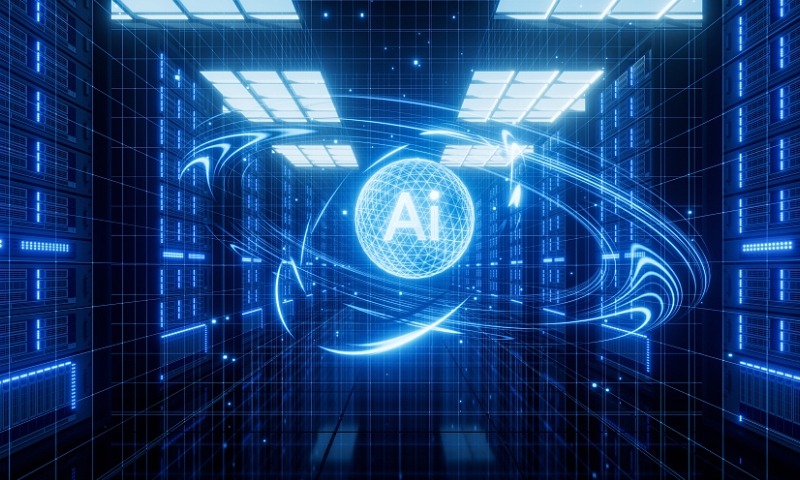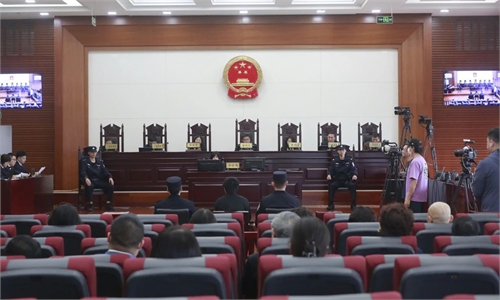Online novel platform embroiled in controversy for collecting AI training material, highlighting concerns about machines replacing humans

AI Photo: VCG
Copyright infringement cases related to artificial intelligence (AI)-generated content are becoming increasingly common as AI technology has been largely incorporated into various sectors. Recently, a Chinese online novel platform had to retract its proposal to request the permission of the creators to sign a protocol allowing their works to be used for AI training.
The controversy that the platform has been embroiled into has triggered a sentiment against AI technology. Some industry insiders told the Global Times on Monday that behind the scenes there are concerns about machines replacing human workers. Creation platforms and large-model developers will have to draw a clear legal line on AI-related content in the interest of the future development of the AI industry.
Part of the protocol revealed that signing the protocol, the entire or partial content and related information of the signed works such as the title, summary, outline, chapters, characters, author's personal information, cover image can be used as data, corpus, text, materials for AI research and development, machine learning, model training, deep synthesis and algorithm development.
"When the AI training used to produce content is copyrighted, creators' original text will not be copyrighted," one of the authors on the Tomato Novel, a novel platform affiliated with ByteDance wrote. That means the AI will compete with your creations, the author stressed, raising concerns.
Another creator posted that if the platform supports AI-generated content, there is a risk of human original work labeled as "plagiarism."
The skeptical attitude among creators toward AI has been dominating the platform in recent days because of Tomato Novel calling for creators to sign up to the protocol.
Training data on content through AI technology is the general trend of technological development. Short-term obstacles in the legal field cannot stop the historical tide, Li Zonghui, vice president of the Institute of Cyber and Artificial Intelligence Rule of Law affiliated with the Nanjing University of Aeronautics and Astronautics, told the Global Times.
In the realm of creation, all types of works, including the acquisition of human knowledge, are a process of imitation. With such advanced tools for big data analysis, human civilization accumulation, previously reliant on human labor or basic equipment, has been largely enriched. It is indeed a beneficial endeavor, Li said.
In this case, Tomato Novel has legal awareness and has tried to eliminate the legal risks existing in AI technology by initiating a protocol for creators to sign. It is in accordance with the provisions of the Interim Measures for the Management of Generative Artificial Intelligence Services, which was released by the Cyberspace Administration of China and other relevant departments in July 2023, hoping to legally obtain the corresponding content authorization, but the platform did not do it properly, Li said.
"Merely using terms without paying consideration as a profit-sharing mechanism cannot ensure that the platform conducts AI training and applies AI-generated content in a fair manner, as AI-generated content should empower human authors rather than undermine them," emphasized Li.
In response to the controversy, Tomato Novel later retracted and reedited its protocol, stating that creators are free to terminate the agreement if they have any doubts, highlighting that the platform holds the belief that AI is merely a tool that helps the creators to achieve their dreams, media report said.
The edited version of the protocol stated that the aim of developing AI as an auxiliary tool can enhance authors' writing efficiency and reading experience, such as AI naming - to solve the dilemma authors face when naming characters in their writing, and AI research - to assist authors in finding relevant information for their writing.
For AI-generated content, service providers have a duty to prominently label the content in a reasonable location or area to address public confusion or misidentification, legal experts said. They noted that whether the content generated by AI tools are subject to copyright laws depends on whether the content belongs to the fields of literature, art or science, whether they have originality or present a certain unique form of expression, and whether they constitute intellectual achievement.
In February, China ruled on a case of infringement of copyright by an AI-generated service, the first effective ruling of its kind globally. The Guangzhou Internet Court ruled that an AI company had infringed the plaintiff's copyright and adaptation rights to the Ultraman works in the process of providing generative AI services, and should bear relevant civil liability.
The plaintiff believed that the defendant, without authorization, unlawfully used the plaintiff's rights to train its model and generate substantially similar images, and through the sale of membership and other value-added services obtain illegal profits, causing serious harm to the plaintiff.
Similarly, out of copyright infringement concerns, the New York Times once filed a lawsuit against OpenAI and Microsoft, bringing attention to the issue of non-transparent data collection by US tech companies in training their chatbots.
Clearly, copyright infringement related to AI highlights a significant crisis for the creative industry brought by large model developers in all countries, experts said. It raises concerns about machines replacing human workers and the challenges of addressing the conflicting interests arising from this situation, according to Li.



